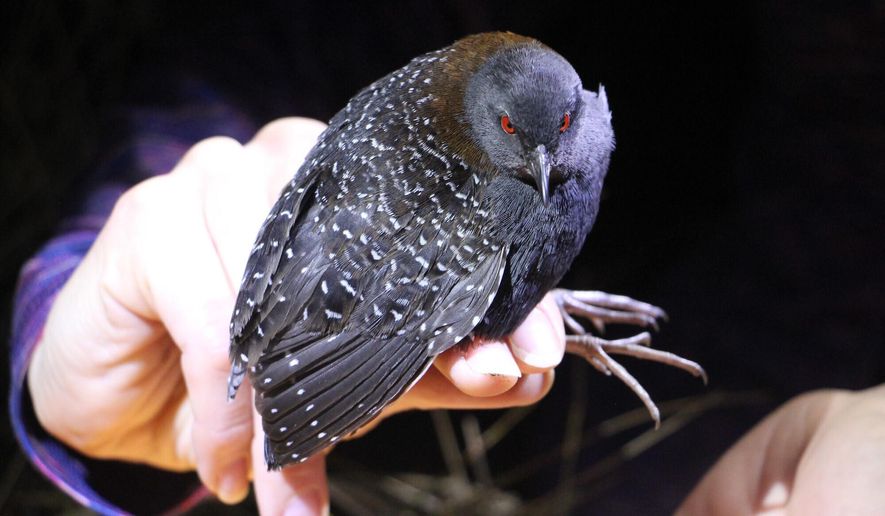NEW ORLEANS (AP) - Environmentalists have sued the Trump administration for failing to follow through on a proposal made two years ago to protect a small, elusive marsh bird nicknamed the “feathered mouse.”
“The eastern black rail stands on the brink of extinction,” said the lawsuit filed Thursday in U.S. District Court in New Orleans. The U.S. Fish and Wildlife Service did not immediately respond to a request for comment, but generally cannot comment on lawsuits.
The sparrow-sized bird has brilliant red eyes, black or dark gray feathers flecked with white and a brown nape.
In the U.S., its historic range runs from coastal Massachusetts to Texas and inland to the eastern slope of the Appalachian Mountains. The birds also are found in salt, brackish and freshwater marshes in Mexico, Central America and the Caribbean but are “rare and irregular” throughout their range, according to the suit.
It said urban and agricultural sprawl and sea level rise have eaten away at wetlands throughout their range, and floods, hurricanes, intense grazing or haying, and poorly timed prescribed burns also have hurt the bird and the marshes where they live.
“These charmingly odd, elusive birds are being shoved toward extinction because the Trump administration can’t be bothered to protect them,” Stephanie Kurose, an attorney at the Center for Biological Diversity, which joined a New Orleans-based coalition called Healthy Gulf in the suit, said in a news release. “If we want to prevent eastern black rails from becoming the latest victim of the extinction crisis, we have to quickly get them the legal protections they desperately need.”
The U.S. Fish and Wildlife Service proposed listing the bird as threatened in 2018 but never made the rule final, the groups said in the lawsuit. They said the 2018 proposal was a response to a petition filed eight years earlier by the center.
The U.S. interior secretary was required to make a final decision within a year of the proposal, made Oct. 9, 2018, but failed to do so, said the suit. It names the agency and Interior Secretary David Bernhardt as defendants.
“The Fish and Wildlife Service has long struggled to provide timely protection to species,” the groups’ news release said. “The entire process of listing species and designating critical habitat is supposed to take two to three years. But on average it has taken the Service 12 years, and in many cases decades, to protect species. At least 47 species have gone extinct waiting for protection.”




Please read our comment policy before commenting.